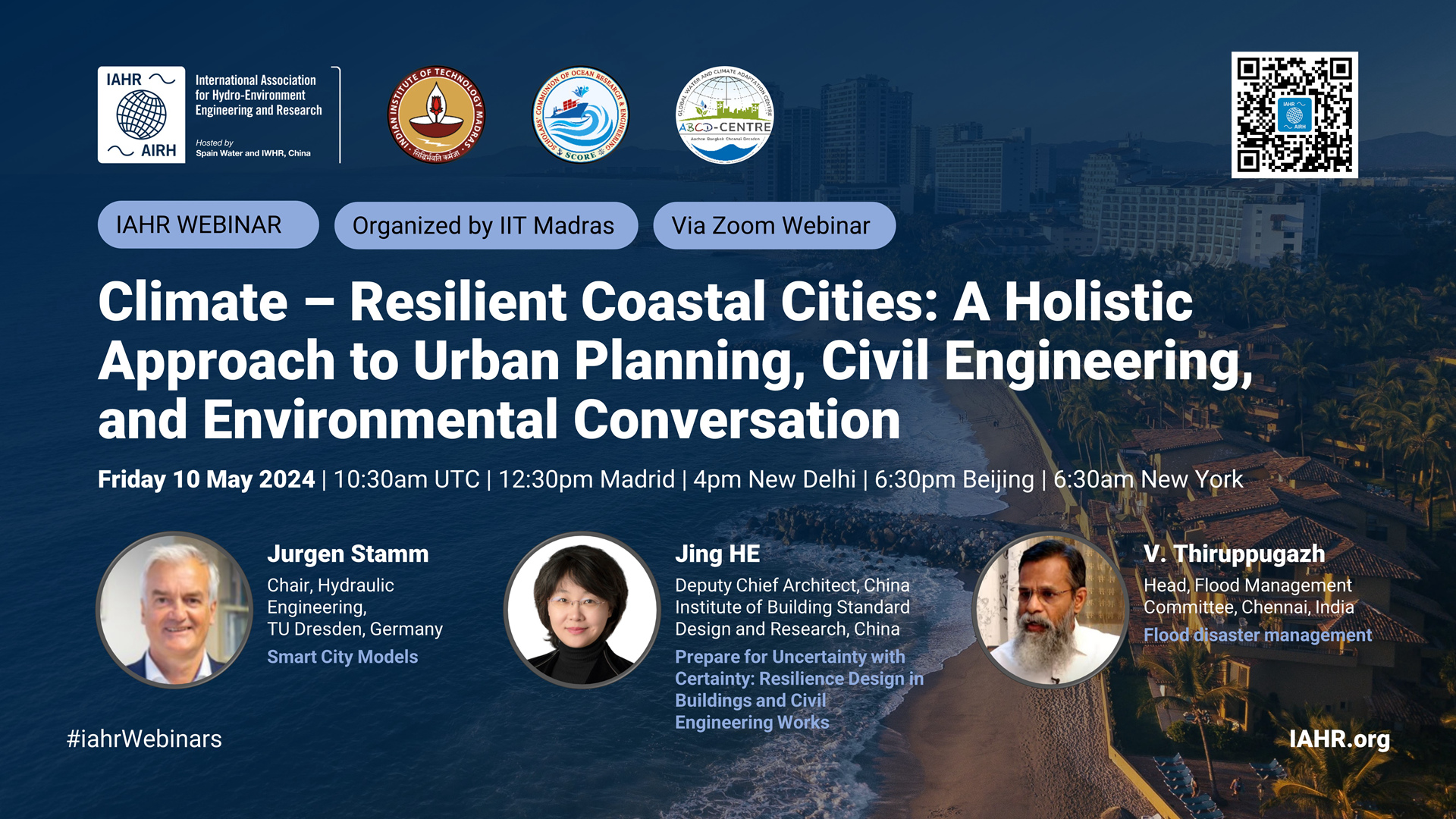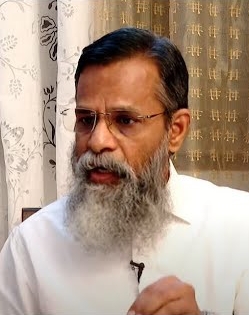Climate - Resilient Coastal Cities: A Holistic approach to Urban Planning, Civil Engineering and Environmental Conservation

~ FREE ZOOM WEBINAR ~
Climate-Resilient Coastal Cities
A Holistic Approach to Urban Planning, Civil Engineering, and Environmental Conservation
10 May 2024
06:30AM New York | 10:30AM UTC | 12:30PM Spain | 4PM India | 6:30PM China
Urban planning plays a pivotal role in coastal cities, especially in the context of climate change and environmental conservation. Global climate change poses various risks across various sectors, affecting ecosystems, economics, and human well-being. As the noticeable impacts of climate change escalate, the inquiry arises regarding effective mitigation measures. The mitigation measures will be indispensable in the short and medium term, and their adaptive capabilities will be of central importance. The impact of climate change in India encompasses a broad spectrum, with extreme weather events posing a significant and imminent threat. In the South Asian region, scientists predict an increased frequency of floods, attributed to intensified rainfall events and glacier lake outburst floods (GLOFs) in mountainous regions. These patterns are already manifesting, as evidenced by the devastating 2007 floods caused by monsoon rains, leading to over 2,000 casualties and displacing more than 20 million people in Bangladesh, India and Nepal (UNICEF). In the Himalayan region of South Asia, the frequency of GLOFs has increased in the latter half of the 20th century, with recent incidents reported in Nepal, India, Pakistan, and Bhutan. A recent study from Germany, commissioned by the Federal Ministry for Climate Protection, comes to the conclusion that the consequences of climate change resulted in at least 145 billion euros in damages between 2000 and 2021. Depending on the trajectory of climate change, future costs are projected to range between 280 and 900 billion euros by 2050.
As coastal cities face the dual challenges of rapid urbanization and the impacts of climate change, strategic urban planning becomes essential to ensure the resilience and sustainability of these coastal ecosystems. Coastal areas are particularly vulnerable to extreme weather events, changing precipitation patterns and rising sea levels associated with climate change. Adequate urban planning can mitigate these risks by incorporating measures such as robust coastal infrastructure, elevated smart buildings, and green spaces that act as buffers against storm surges and flooding.
The Smart Cities Mission of India, launched by the Government of India in 2015, is a ground-breaking initiative to transform the urban landscape across the nation. This visionary program seeks to address the challenges posed by rapid urbanization by harnessing the power of technology and innovation to improve the quality of life for citizens. The mission focuses on developing 100 smart cities, including coastal cities like Visakhapatnam, Puducherry, Chennai, Thoothukudi, Kochi, Panaji, etc.
In the foreseeable future, numerous cities will initiate endeavours where expertise in climate-resilient infrastructure and environmentally conscious urban planning becomes a crucial knowledge domain for city planners, architects, policymakers, engineers, and various stakeholders. A well-designed urban landscape not only protects coastal cities from the adverse effects of climate change but also nurtures a harmonious relationship between urban development and the delicate coastal ecosystems, ensuring the long-term sustainability of these dynamic and vulnerable regions. These webinar acts as a forum for the exchange of knowledge, emphasizing the incorporation of climate-resilient technologies and green building practices into urban landscapes. This knowledge transfer has the potential to alleviate the impact of climate change in future urban developments.
Speakers
Chair
Moderator
Programme
Opening and introduction
Vallam Sundar | Professor, Indian Institute of Technology (IIT), India
N. Hari Ram | Joint Secretary of SCORE, Ocean Engineering, IIT Madras
Presentations
Smart City Models
Jurgen Stamm | Chair, Hydraulic Engineering TU Dresden, Germany5-10 Mins Discussion
Prepare for Uncertainty with Certainty: Resilience Design in Buildings and Civil Engineering Works
Jing He | Deputy Chief Architect, China Institute of Building Standard Design and Research, China5-10 Mins Discussion
Flood Disaster Management
V. Thiruppugazh | Head Flood Management Committee, Chennai, India
Closing
Sannasiraj S A | Professor, Indian Institute of Technology Madras, India
N. Hari Ram | Joint Secretary of SCORE, Ocean Engineering, IIT Madras
More information
How to participate: This webinar will be held via ZOOM Webinar, please click here to register and get the Zoom Webinar link.
To request your Certificate of Participation, please fill an online form, the form is only available during the duration of the webinar.





